

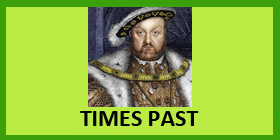
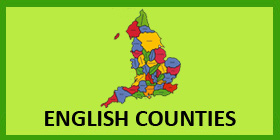
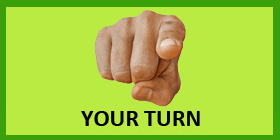
Back to the Bristol Page

- The Royal Connection
- Bristol Eats
- Owlbut's Birdwatch
- Bristol VIPs
I'm sure there are many royal connections
with Bristol but I like this one as it's a bit quirky. The telephone was invented by Alexander Graham Bell in 1876 and in 1879 the first telephone exchange opened
in England. This allowed people in one area to phone someone else in the same area. In January 1880 the first trunk line was opened which allowed people to make
calls to a different area than that covered by their exchange. They would be connected by operators at each exchange. The first line was between Leeds and Bradford
in West Yorkshire. This development meant that a circuit connected the two telephone switchboards in Leeds and Bradford, thereby allowing access to several
extension lines at once. This was a method that would eventually be repeated across the country and was still in use in late 1950's, so yes, I experienced it.
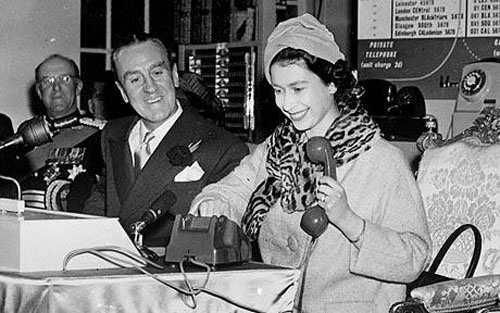 It then became automatic so people could dial direct to another area and
operators were no longer needed to connect these calls. It was used by Queen Elizabeth II in 1958 when she made a call to Edinburgh from Bristol, a distance of
over 300 miles. I have to say she does look a bit excited by this. Her call lasted two minutes five seconds and cost 10d (4p in today's
money). The system, known as Subscriber Trunk Dialling, was in use across the whole country by 1979. It meant that all areas had to have a unique code for people
to dial and is the same system we use nowadays. From September 5th 1959 people were able to make these "trunk" calls from public call boxes and the Deputy Lord
Mayor of Bristol phoned the Lord Mayor of London from a telephone box, apparently dialling the number himself. Who's a clever boy.
It then became automatic so people could dial direct to another area and
operators were no longer needed to connect these calls. It was used by Queen Elizabeth II in 1958 when she made a call to Edinburgh from Bristol, a distance of
over 300 miles. I have to say she does look a bit excited by this. Her call lasted two minutes five seconds and cost 10d (4p in today's
money). The system, known as Subscriber Trunk Dialling, was in use across the whole country by 1979. It meant that all areas had to have a unique code for people
to dial and is the same system we use nowadays. From September 5th 1959 people were able to make these "trunk" calls from public call boxes and the Deputy Lord
Mayor of Bristol phoned the Lord Mayor of London from a telephone box, apparently dialling the number himself. Who's a clever boy.
![]() Back to the top
Back to the top
The Colston Bun was made in the city of Bristol and, traditionally, given out to children on 13th November. The buns are made of dough flavoured with dried
fruit, candied peel and sweet spices. The bun comes in two sizes. The "dinner plate" size with eight wedge marks on the top, and the "ha'penny staver"
which was an individual size bun.
The idea was that the poor children of the Colston School would take the large bun home to share with their family while the individual bun
could be eaten straight away, staving off their hunger.
You can read a little more about my views on Mr Colston in the "Richard Remembers" section so let us just say here that he made numerous
donations to schools and other good causes although much of his wealth was acquired from what I, and others, would consider were crimes against humanity. As someone who
believes you can only apologise for something that happened accidentally and not for something you did and knew was wrong, I'm not sure giving money
to a good cause that was earned disgustingly is a way of putting things right.
![]() Back to the top
Back to the top
You can see starlings all year round almost everywhere. There are nearly 2 million breeding pairs and large numbers arrive in
the autumn to winter here. They are smaller than blackbirds and have a pointed head, triangular wings and a short tail.
Although they look black, if you get closer you can see they have a glossy sheen which includes purples and greens. The feathers of young birds are
black, brown and white. They all have brown and pink legs and a black, thin and powerful beak. They eat fruit and invertebrates, which are small animals without a
back bone. Starlings spend a lot of time in flocks and can often be seen flying together. They are still one of the commonest garden birds although it is a red
list species.
Starlings are 21 cms in length, have a wingspan of between 37 and 42 cms and can weigh between 75 and 90 grams.
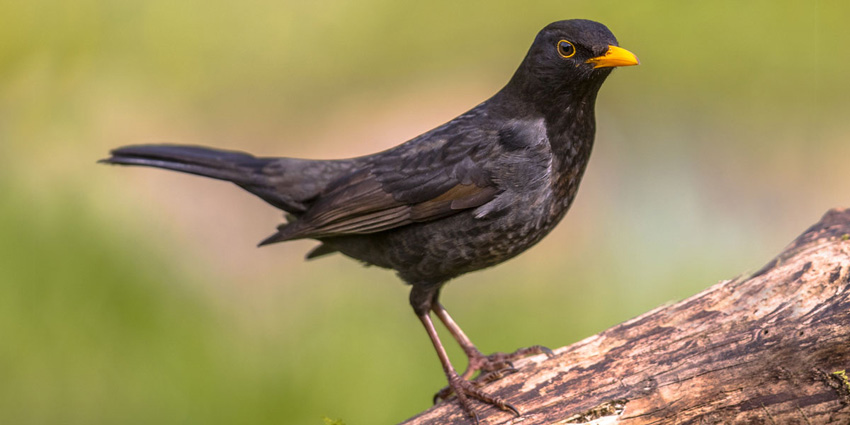
Seven random people who were born in Bristol in the last 100 years:-
Damien Hirst (Artist), Maya Jama (TV and Radio Presenter), Dave Prowse (Actor - Darth Vadar), Jenny Jones (Olympic Snowboarder), Hannah Murray (Actor),
Lando Norris (F1 Racing Driver) and Claudia Fragapane (Artistic Gymnast).
![]() Back to the top
Back to the top

